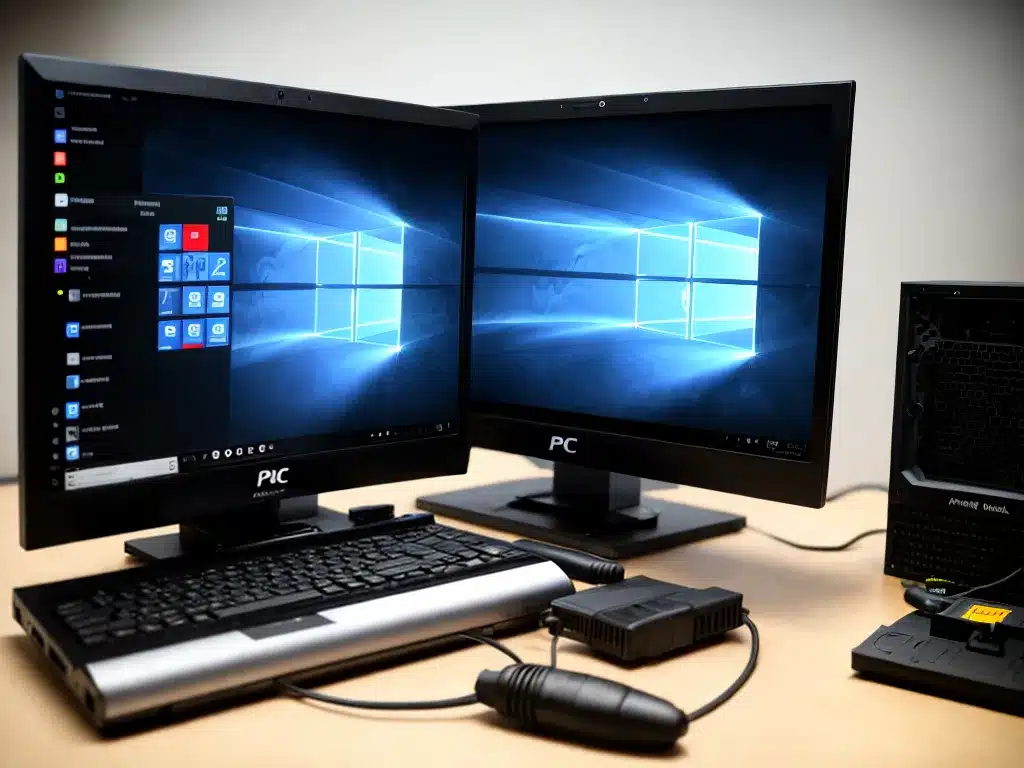
Having computer issues can be frustrating, but there are many great free tools available to help diagnose and fix common PC problems. As a PC user and technician, these are my top recommendations for the best free diagnostic utilities.
System Information Tools
System information tools provide detailed specs and insights into your computer’s hardware, operating system, drivers, performance, and more. They are invaluable for identifying faulty or incompatible components.
Speccy
Speccy is my top choice for a free system information tool. It provides an intuitive and detailed overview of your PC’s specs. Some of the key details Speccy reports:
-
CPU, motherboard, RAM: Shows your processor model, cores, speeds, motherboard model, BIOS version, RAM capacity and speed.
-
Storage: Lists all hard drives, optical drives, and flash drives connected to your PC with used/free space.
-
Graphics: Provides graphics card model, display resolution and drivers.
-
Operating system: Displays Windows version and service packs installed.
-
Networking: Reports network adapters, IP address, gateway, DNS servers, and more.
Speccy presents all this system info in a clean, organized interface that is easy to understand. You can also easily export full reports to text or XML files.
HWiNFO
HWiNFO is another excellent free system information utility. It digs even deeper into your hardware and operating system, providing technical specs for every single component in your PC.
HWiNFO has advanced analysis tools like benchmarking, monitoring sensors in real-time, and compatibility checks. It can be a bit overwhelming for casual users, but is great for advanced troubleshooting.
Performance Monitoring
Sometimes PC problems manifest as slowdowns and degraded performance over time. Performance monitors can pinpoint exactly what is dragging your system down.
Task Manager
Windows Task Manager lets you monitor CPU, memory and disk usage in real-time to see what processes are consuming the most resources.
To open Task Manager, press Ctrl + Shift + Esc or right-click the taskbar and select “Task Manager”. Click the “Performance” tab to see live graphs of usage metrics. Check for any processes using excessive CPU, memory spikes, or constant disk activity.
Process Explorer
Process Explorer from Microsoft provides even more detailed performance monitoring and troubleshooting capabilities than Task Manager.
Process Explorer shows full tree diagrams of running processes, including child processes and threads. You can view CPU, memory, disk and network usage per process or thread. It has powerful process management functions like killing processes and UAC control.
Stress Testing
Stress testing tools place heavy workloads on components like the CPU and RAM to simulate real-world high usage. By stress testing, you can identify hardware failures and stability issues manifesting under load that don’t appear at idle.
Prime95
Prime95 is my top choice for CPU stress testing. It uses advanced math algorithms to heavily stress test your CPU and RAM. Prime95 detects errors like crashes and calculations failures that can indicate faulty hardware. It provides temperature monitoring to check for overheating under load.
MemTest86
MemTest86 is the gold standard for testing your RAM. It boots from a USB drive and runs intensive tests that identify memory issues. Let it run for at least one full pass (6-8 hours for thorough testing). Any single error indicates a RAM failure.
Furmark
Furmark is designed specifically for GPU stress testing. It pushes your graphics card to its limits with intensive rendering and GPU computing workloads. Monitor for artifacts, crashes, overheating and other anomalies.
Disk Utilities
Disk utility software is critical for diagnosing storage-related problems. They can scan drives for bad sectors, check file systems for errors, benchmark speed, and recover deleted files.
CrystalDiskInfo
CrystalDiskInfo monitors the health of all your drives by analyzing SMART data. It can detect issues like high disk usage, pending drive failure, bad sectors, and temperature problems. The health status and lifetime usage metrics help determine if faulty hardware is causing PC issues.
CrystalDiskMark
CrystalDiskMark benchmarks sequential and random read/write speeds for your drives. Slow disk speeds are a major performance bottleneck, so this tool helps identify drives in poor health.
Recuva
Recuva securely recovering deleted files and images. It can rescue files from healthy drives as well as damaged or newly formatted drives. Recuva helped me recover personal files a few times over the years!
Malware Scanning
Malware like viruses, spyware and rootkits can wreak havoc on system files, performance, and stability. Running quality malware scans is essential troubleshooting.
Malwarebytes
Malwarebytes is my top recommendation for malicious software removal. It uses heuristic analysis alongside signature-based scanning to identify and eliminate zero-day threats. Malwarebytes has prevented numerous infections over the years across my personal PCs and client networks.
ADWCleaner
ADWCleaner specializes in removing pesky adware and potentially unwanted programs (PUPs) that are often missed by traditional antivirus tools. PUPs can inject ads, change browser settings, and affect system performance.
Repair Tools
The built-in Windows System File Checker can scan for and restore corrupted system files that may be causing crashes, bugs, or instability.
To run System File Checker, open an elevated Command Prompt and type sfc /scannow to scan your system files. Use DISM /Online /Cleanup-Image /RestoreHealth to check and repair the Windows image.
For more involved Windows system repairs, a Windows installation media lets you access advanced recovery tools. You can boot to the installation media to launch utilities like System Restore, Startup Repair, Command Prompt, and Resetting Windows. This helps fix issues like startup failures and system file damage.
Final Thoughts
Diagnosing PC issues can be a tedious process, but free diagnostic tools streamline the troubleshooting process considerably. My personal favorites are Speccy, Process Explorer, Prime95, Recuva, and Malwarebytes. Just be sure to only download tools from official developer sites to avoid malware. With the proper diagnostics software, you can get to the bottom of most computer problems and find solutions quickly.












